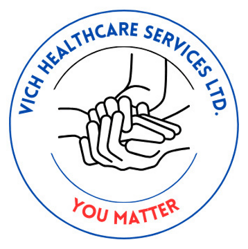The Importance of Intimate Hygiene
This blog, we will explore the importance of intimate hygiene, discuss best practices, and highlight the benefits of incorporating proper hygiene routines into your daily life. Understanding and prioritising intimate hygiene can lead to a healthier, more confident, and comfortable you.
Vimbai Chiwuswa
8/5/20244 min read


The Importance of Intimate Hygiene
Maintaining good intimate hygiene is essential for overall health and well-being, yet it is often overlooked. Proper intimate hygiene is not only crucial for personal comfort but also plays a significant role in preventing infections and ensuring the health of the reproductive system. In this blog, we will delve into key practices and tips for maintaining proper genital hygiene, helping you stay healthy and comfortable.
Gentle Cleansing with Water:
Avoid using soaps or shower gels on your genitals, as they can cause dryness, itching, and irritation. Instead, use plain water or an emollient (such as aqueous cream, diprobase, or double base) to wash the area1.
Rinse thoroughly after washing.
Avoid Overwashing:
Wash your genitals as necessary depending on your continance circumstances. Overwashing can disrupt the natural balance of healthy bacteria and lead to symptoms.
Don’t douche, as it can wash away beneficial bacteria and increase the risk of infections1.
Pubic Hair Care:
Pubic hair serves as protection against external irritants. Avoid excessive shaving or hair removal, which can cause skin irritation and infections.
Keep the area clean and trimmed, but don’t remove all the hair1.
Sanitary Wear:
Use sanitary towels and tampons only during your period. Wearing them at other times can prevent your skin from breathing and lead to soreness and itching.
Change underwear frequently if you have normal vaginal secretions1.
Barrier Creams and Moisturizers:
For non-broken skin, consider using barrier creams like Medi Derma-S Total Non-Sting Film or Medi Honey.
Proshield Plus Skin Protect and Proshield Foam are suitable for broken skin.
Apply these products as needed to protect and soothe the skin1.
Incontinence Products:
Use pull-up pants (e.g., Tena ProSkin or Nateen) and panty liners to manage incontinence.
Change wet pull-ups promptly to prevent skin damage.
Urine and Bowel Movement:
Urine and feces can cause skin burns and pressure sores. Encourage clients to use the toilet promptly.
Check their pads discreetly to maintain their dignity and privacy.
It is essential to discuss incontinence, as it is often associated with stigma. This highlights the need for more awareness campaigns and open discussions about this sensitive topic that affects many adults. Remember, good intimate hygiene contributes to overall comfort, health, and confidence. It’s a simple yet crucial aspect of self-care that everyone can prioritize2
References






The Importance of Intimate Hygiene
Caring
Compassionate services tailored to meet your unique needs.
Support
Contact
carelink
© 2024. All rights reserved.
Mobile: 07411761156/ 07493697945 (UK)
